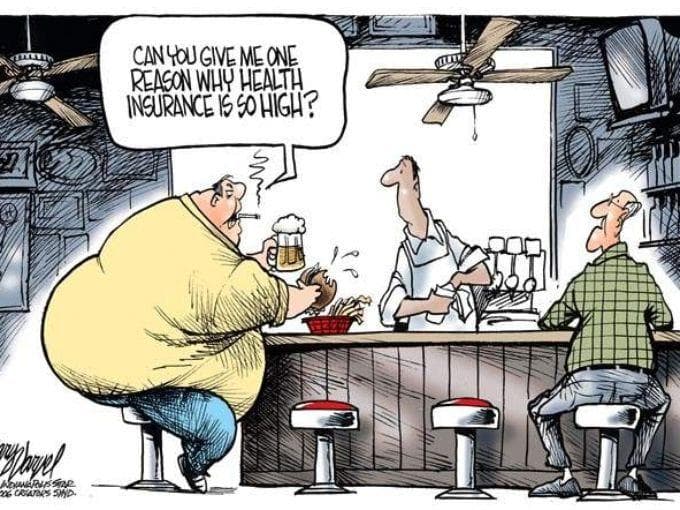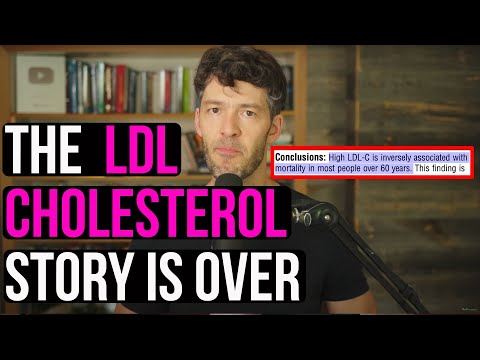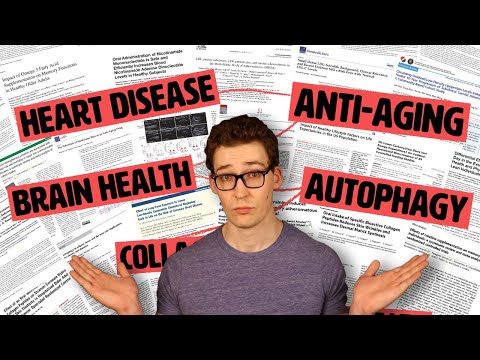Here’s a different view on the debate. To be fair his argument that the actuaries don’t take it into account to assess mortality is a reasonable appeal to authority that is not necessarily a logical fallacy.
If you take rapamycin you pay higher premium rates for life insurances, proving once and for all that rapamycin is pointless or even bad for longevity. This is a reasonable appeal to authority.
It would be interesting to see how the insurance companies calculate this. I would argue not enough people take rapamycin for longevity to impact on actuarial calculations.
Personally I have not come to a settled view on LDL-C.
There is a quick response to this video here.
He used a life insurance guide from 2013. Meanwhile we have the genomic revolution, exponential decrease in cost for sequencing, mendelian randomization, and PCSK9i, from then to today. How is that representative at all what life insurance companies care about today?
And then he talked about a meme association study from 2016 about high LDL cholesterol, it would be funny it it wasn’t just sad at this point.
Here’s Bret Weinstein playing Wolfenstein during the pandemic. Replace with what these people are doing today, by citing 2013 life insurance guides when speaking about today’s insurance, citing 2016 association studies when we have causal studies leveraging genomics today in 2024, etc.

(source: Why Bret Weinstein is dangerous. Because misinformation kills | by Yuri Deigin | Medium)
Meh, at the end of the day the people who suffer the consequences are the conspirac-y ones.
If what they say is true, that LDL cholesterol levels vary more than HDL but the HDL to LDL or total cholesterol is the important thing, then if we keep HDL as a constant, lowering LDL or total cholesterol levels will give a better LDL/HDL or total/HDL ratio that the actuaries like. The ratio that the actuaries like is less than 3.51.
I see no proof that HDL does not vary as much as LDL cholesterol in my long-term measurements of both.
For example: If we take a person with an average HDL level of say 50 mg/dL with a total cholesterol level of 200, then we would get the ratio of total/HDL=4, which is higher than the ideal level the actuaries like. Then if we lower the person’s total cholesterol level to 150 then suddenly we would be in the “ideal” range. The same logic would apply to LDL. Lowering LDL while keeping HDL the same would have similar results.
The actuaries don’t know anything about medicine they just comb the statistics and say “A ha! HDL to LDL ratio is a good indicator of mortality”
Yes, if you want a good ratio you can raise your HDL, but that is more problematic. It is usually easier to lower your LDL or total cholesterol.
Bottom line: LDL/HDL or Total/HDL is just a stat that provides a good indicator. It does not mean that LDL or total cholesterol levels are not important.
“A National Institutes of Health-supported study found that high-density lipoprotein (HDL) cholesterol, often called the “good cholesterol,” may not be as effective as scientists once believed in uniformly predicting cardiovascular disease risk among adults of different racial and ethnic backgrounds.Nov 21, 2022”
Lower levels of HDL cholesterol were associated with increased risks for heart attacks in white but not Black adults, and higher levels were not protective for either group
Study challenges “good” cholesterol’s role in universally predicting heart disease risk | NHLBI, NIH.
LDL needs to be viewed in the context of a person’s inflammation, triglycerides, and APOB. Oh, and Lp(a), and Calcium score. And BP, BMI, waist-to-hip ratio and metabolic health. And possibly also genetic risk, and age.
Makes no sense to consider LDL apart from these measures. The challenge is: how do you execute such a holistic assessment? Is there a predictive model somewhere that takes all this into account? Is there a physician? (No I don’t think so. We’re on our own.)
That’s a hard one. I don’t for now understand the role of Lp(a). I know mine has a tendency of being really low which seems to be a good thing (as does my CRP). However, I don’t understand its role.
Lp(a)-apoB is six times more atherogenic than LDL-apoB.
I listened to these earlier today. I like him as being reasonably strong in the analysis sphere. I think he came back into the LDL matters, but ApoB more sphere. But these videos are useful to listen to other people’s well informed views of the merits of various interventions.
The great news is that LDL lowering medicine such as Bempedoic Acid will reduce LDL, ApoB and inflammation. If you are worried about your kidneys and glucose levels there SGLT2Is. Whatever your disease, there is a way to prevent it.
The key is preventing damage instead of waiting for something to break and then fixing it. Be proactive with your health wherever you can.
Here’s another video looking at information on this. Nothing particularly new as far as I can tell, however.
New study, that is almost 4 years old? Anyway that guy is saying false things and has no understanding of hiearchy of evidence, and the limitations of the study designs he picks, and have serious errors, but more power to him, it’s his freedom of speech after all, many such people, quacks, in history.
I agree. This guy is making arguments on outdated almost 10-year-old information. Insurance companies use cholesterol information nowadays.
Here’s information from a trusted source from 2024.
The (insurance) company looks at several health factors when examining your blood work results, your cholesterol levels being an important one.

“Every human being is the author of his own disease.”
— Buddha
@DeStrider That picture says it all. That why healthcare in the US is so expensive and it’s all behavior.
So you’d have higher taxes instead?
Besides, doesn’t healthy people pay lower premiums (lower LDL etc)?





